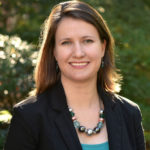Mosques and democracy

Mosques in America serve regularly as magnets for fear and misunderstandings about Islam, Islamic radicalization and terrorism. In fact, a recent survey by the conservative Cato Institute found that 28 percent of Americans, and 47 percent of Republicans, would support banning the construction of mosques in their communities.
But research by a Wheaton professor and her colleagues reveals that U.S. communities should view mosques as a source for strengthening democracy, building alliances and combating terrorism. Aubrey Westfall, assistant professor of political science at Wheaton, shared those insights in an essay published by the Philadelphia Inquirer as well as the Providence Journal.
In the op-ed, Westfall said that her research has shown that the vast majority of mosques in the United States foster connections among attendees and the larger community in which they are located, encouraging civic involvement and mainstream political participation. Further, these connections combat the isolation and alienation that have been found to be risk factors for radicalization.
The greatest enemy of organizations like ISIS are venues where likely recruits will meet and talk with others who highlight theological inconsistencies and expose misinformation, or where recruits will find a social network of friends who will reduce feelings of alienation.
Professor Westfall’s insights are drawn from the forthcoming book The Politics of the Headscarf in the United States (2018, Cornell University Press), which she co-authored with Bozena C. Welborne, Özge Çelik Russell and Sarah A. Tobin.
The book, and the research that informs it, investigates the social and political effects of the practice of Muslim-American women wearing the headscarf (hijab) in a non-Muslim state. The findings go beyond the act of wearing the hijab to consider questions of individual and collective identity in a diverse democracy, the ways in which identities inform and shape political practices, and the meaning of citizenship and belonging in the United States, through the voices of Muslim-American women themselves.
Professor Westfall studies minority politics and human rights. In addition to her work on the political and social attitudes of Muslim Americans, Westfall’s scholarship includes examination of family migration policies in Europe and Scottish views on the United Kingdom’s Brexit movement.
